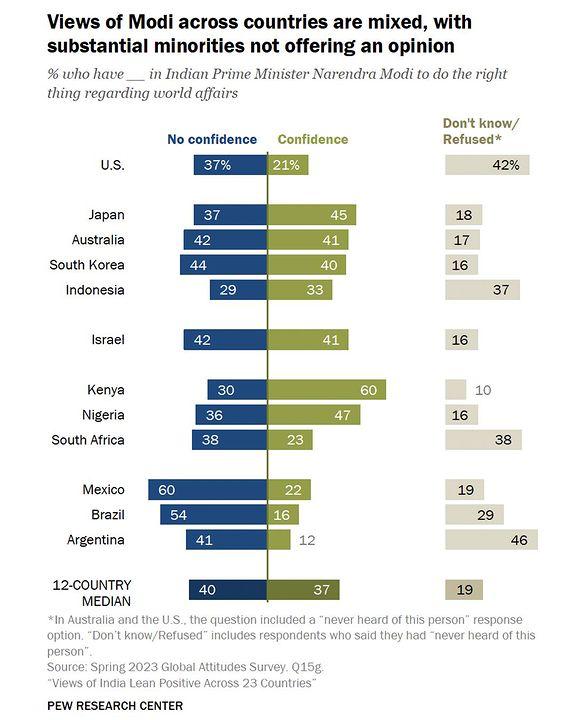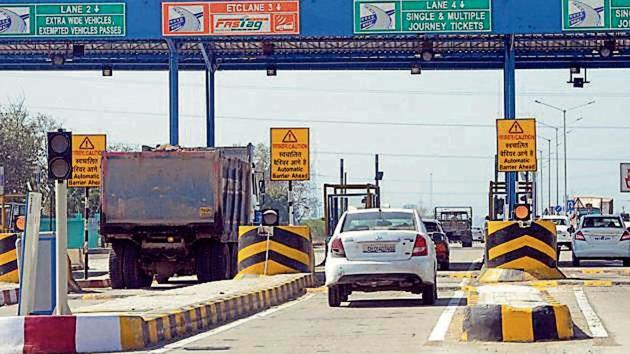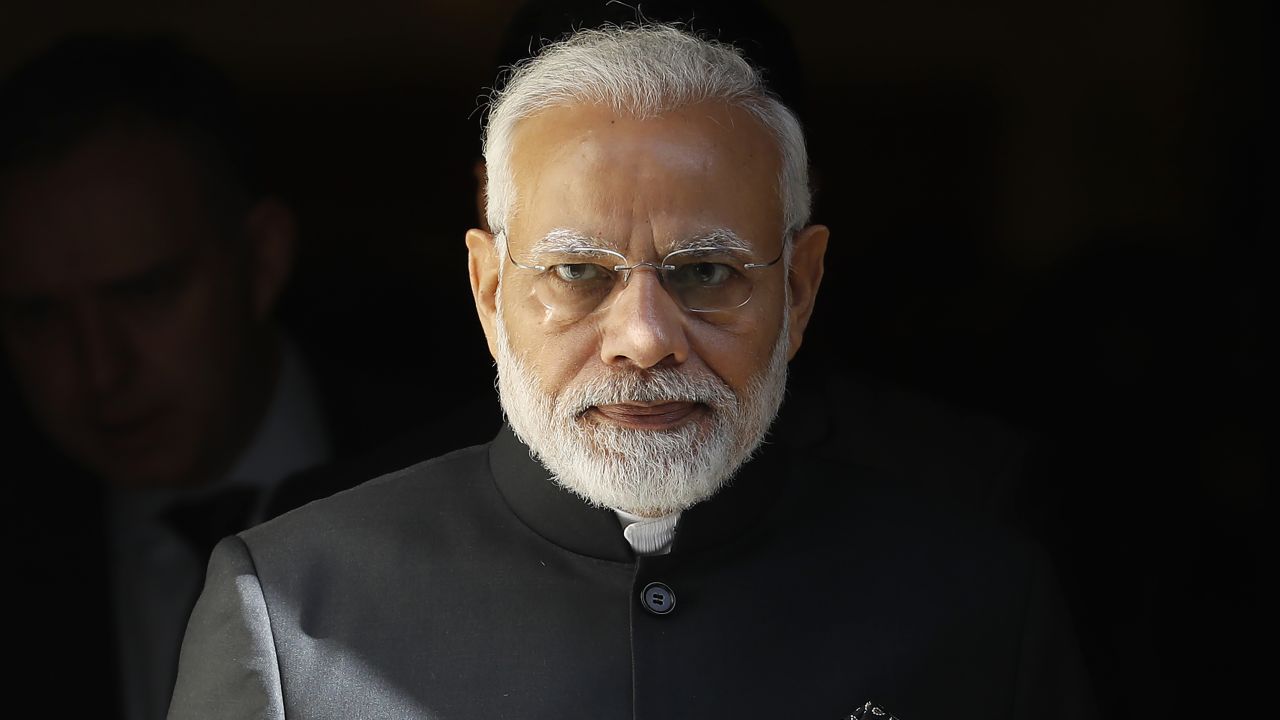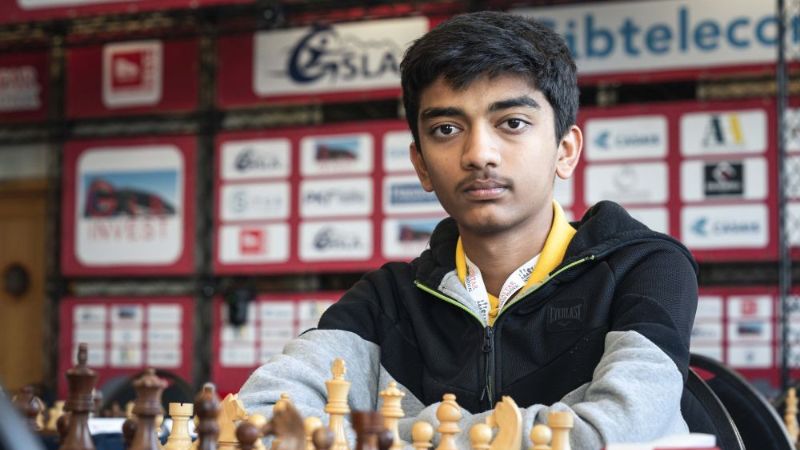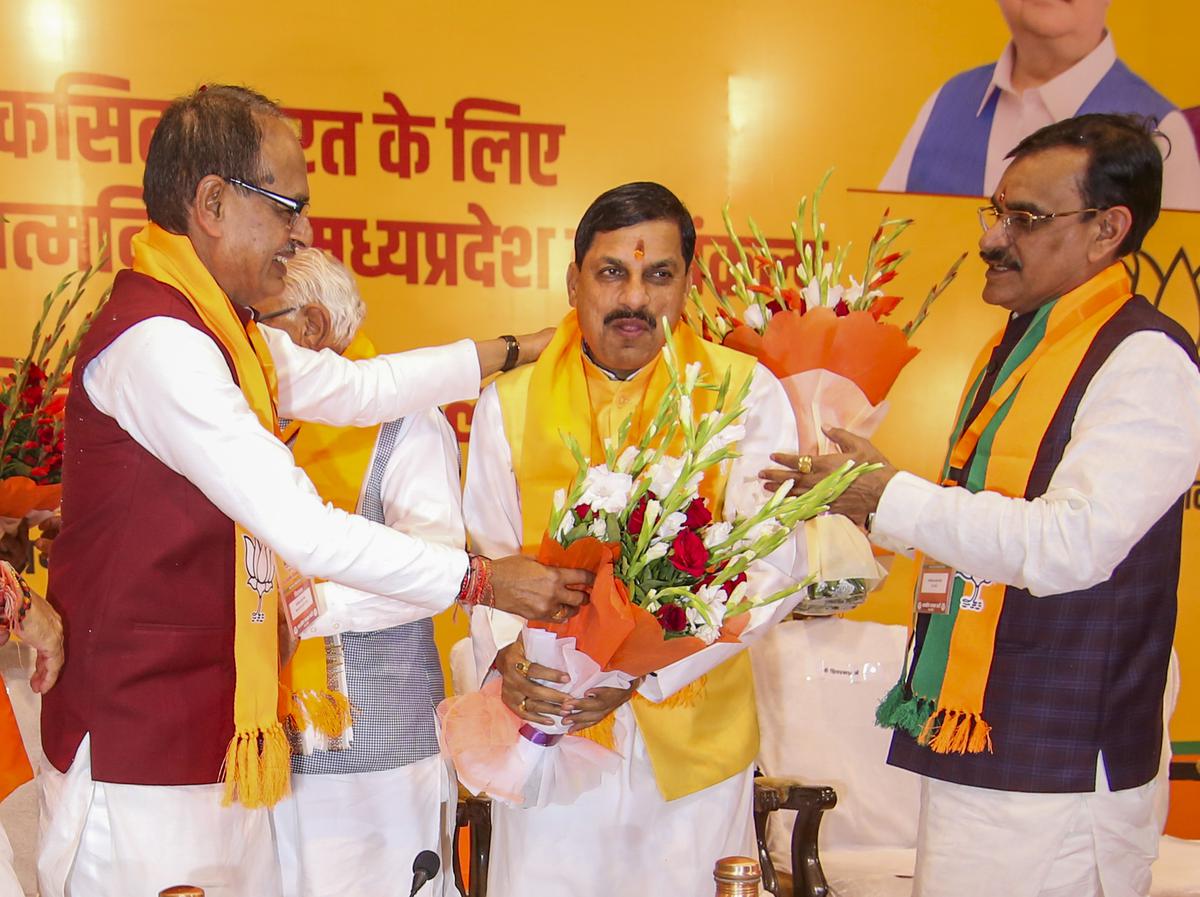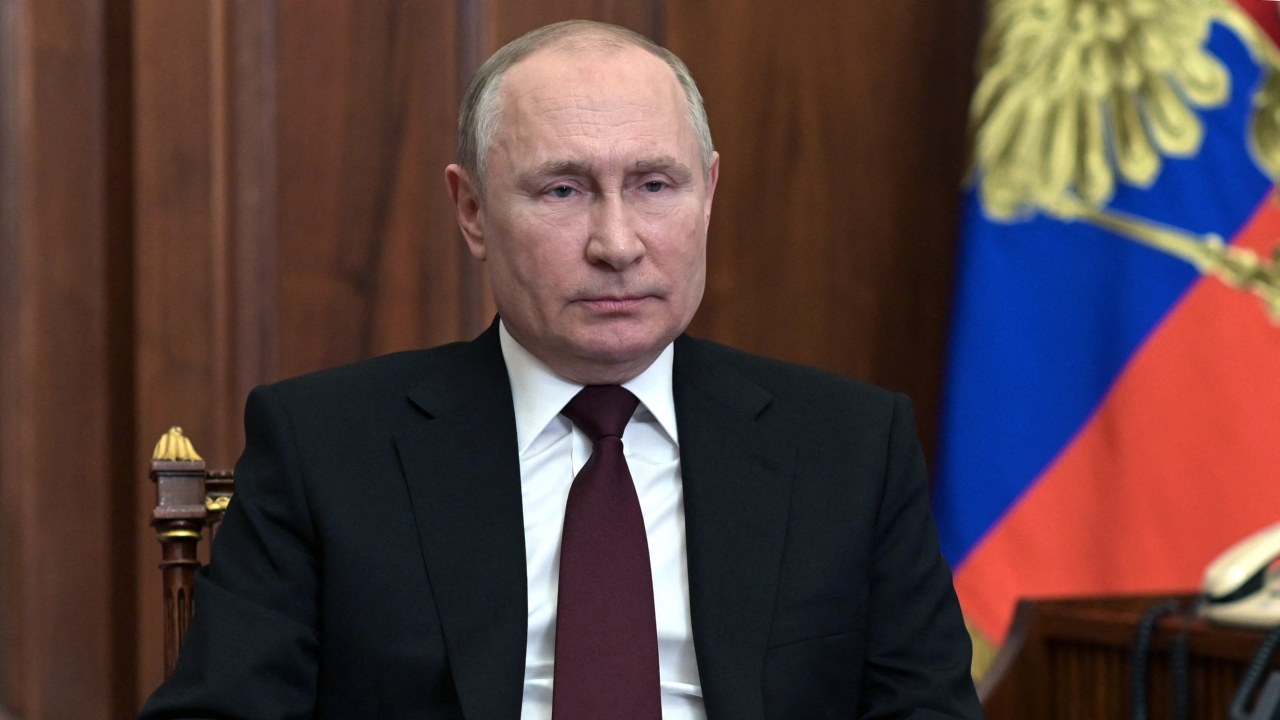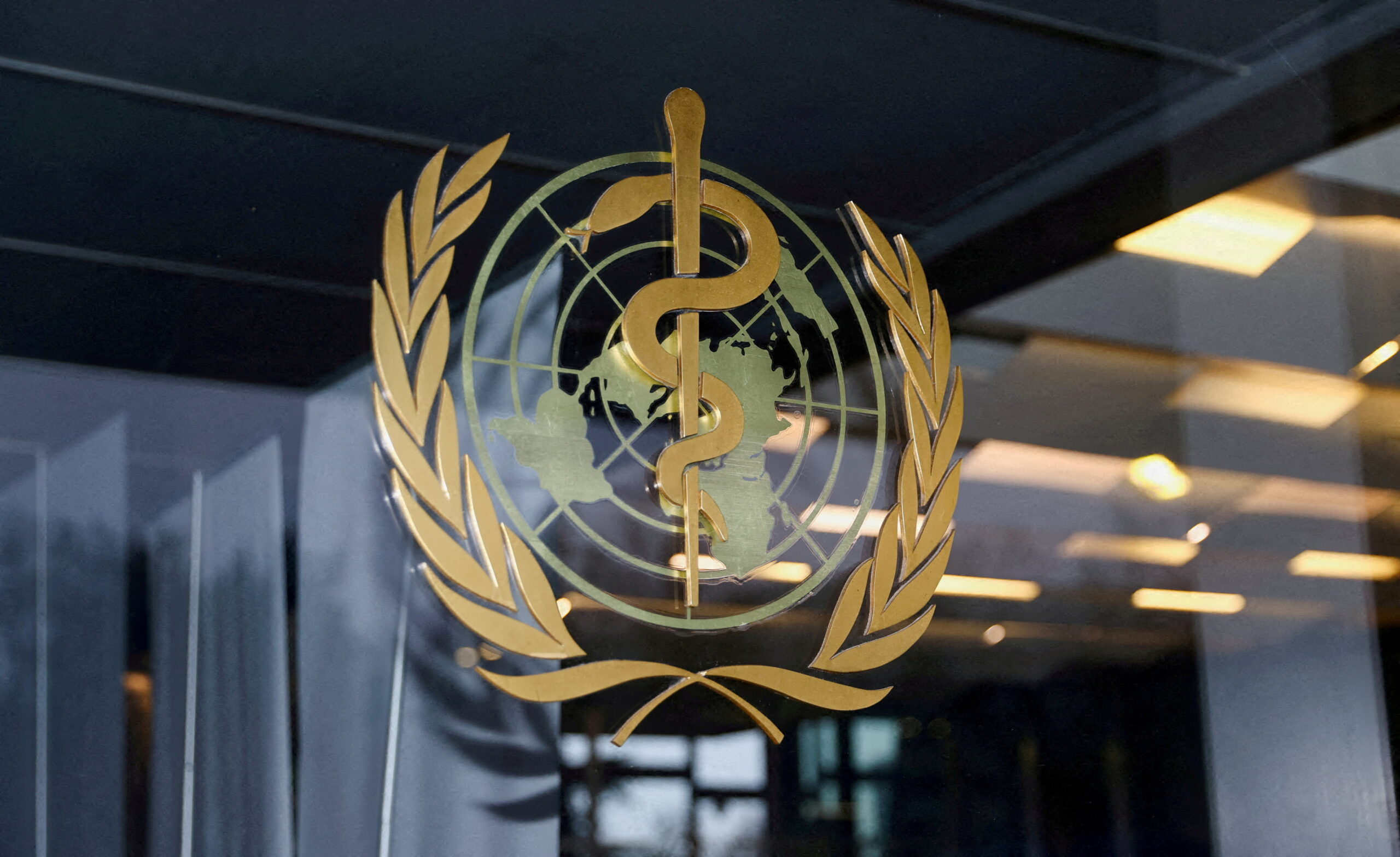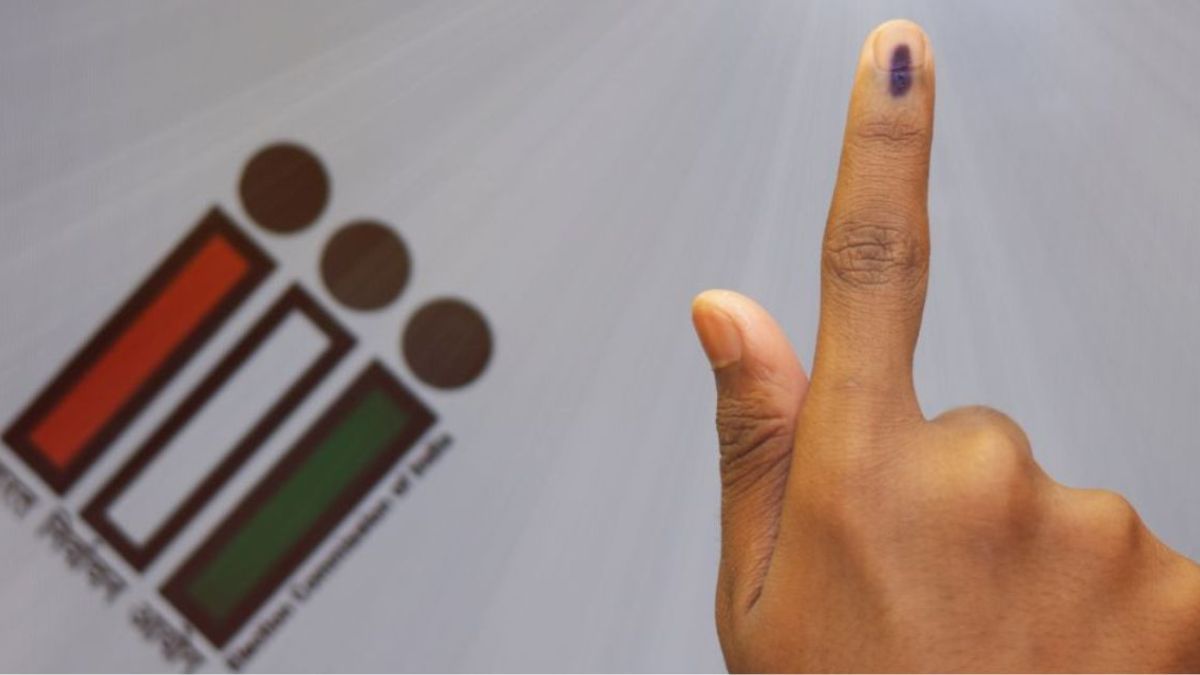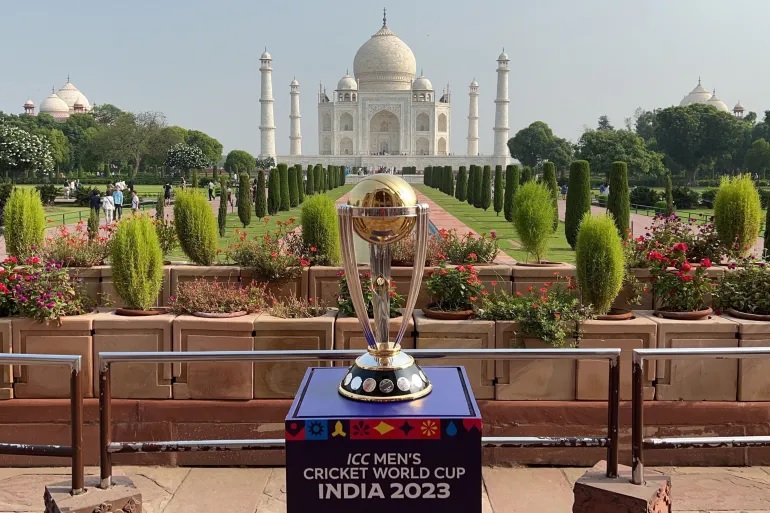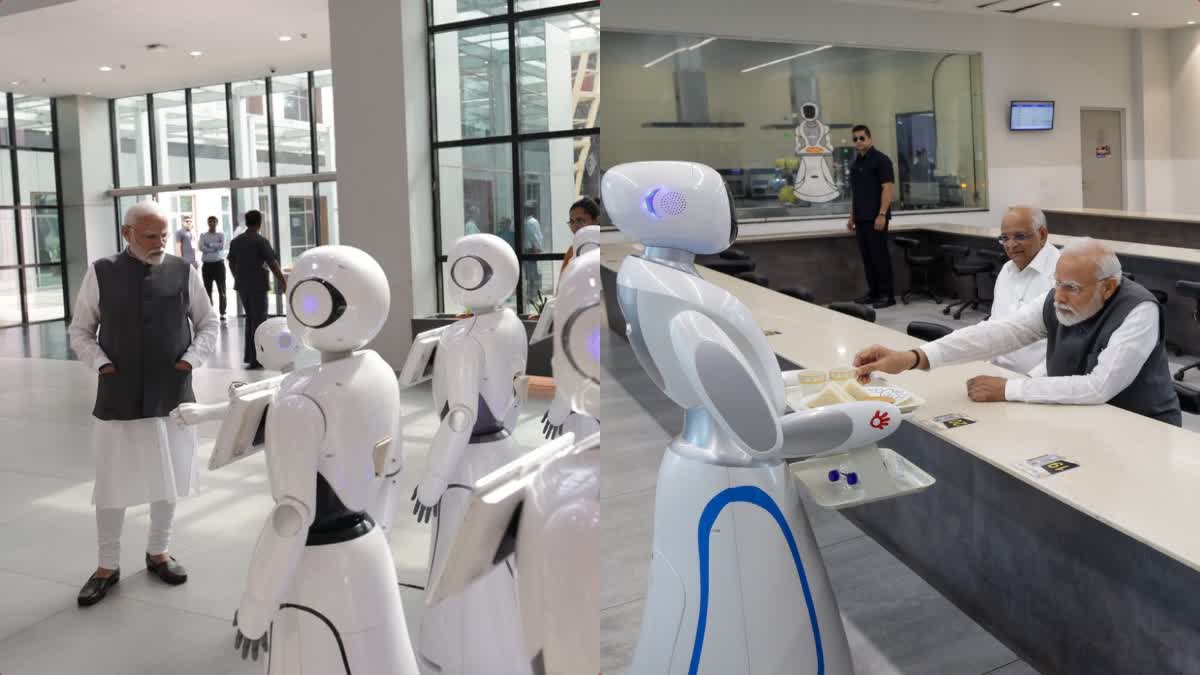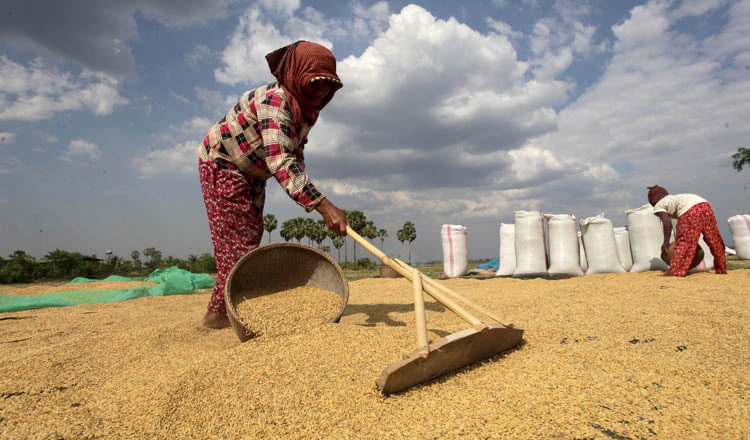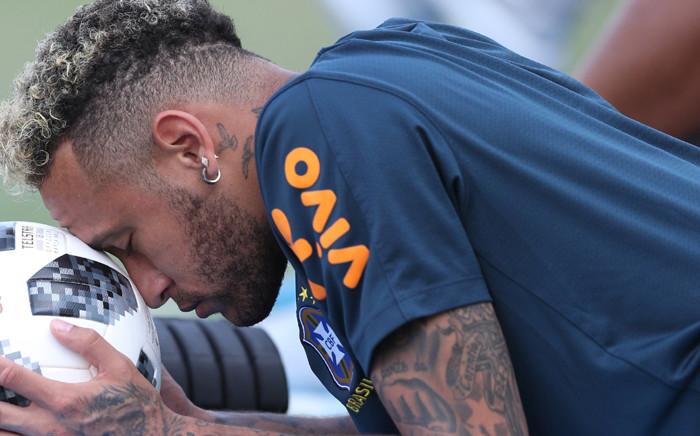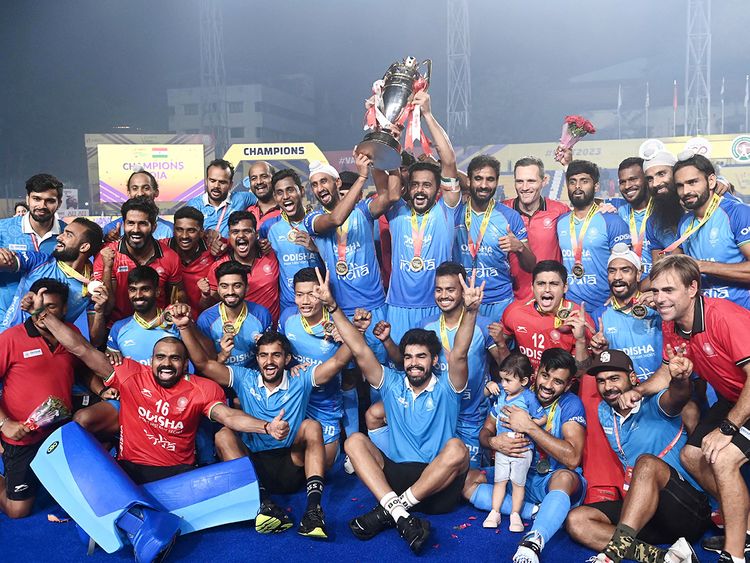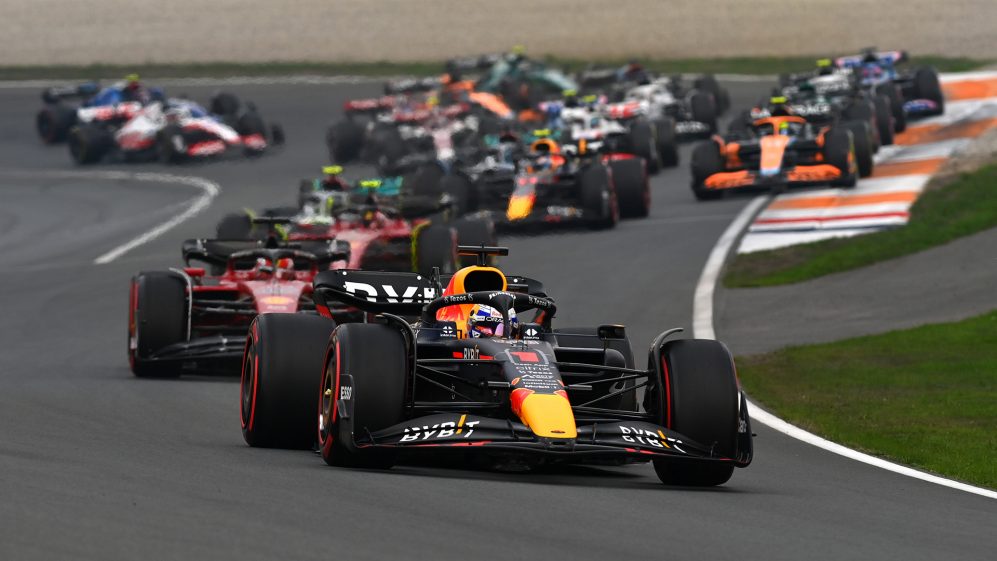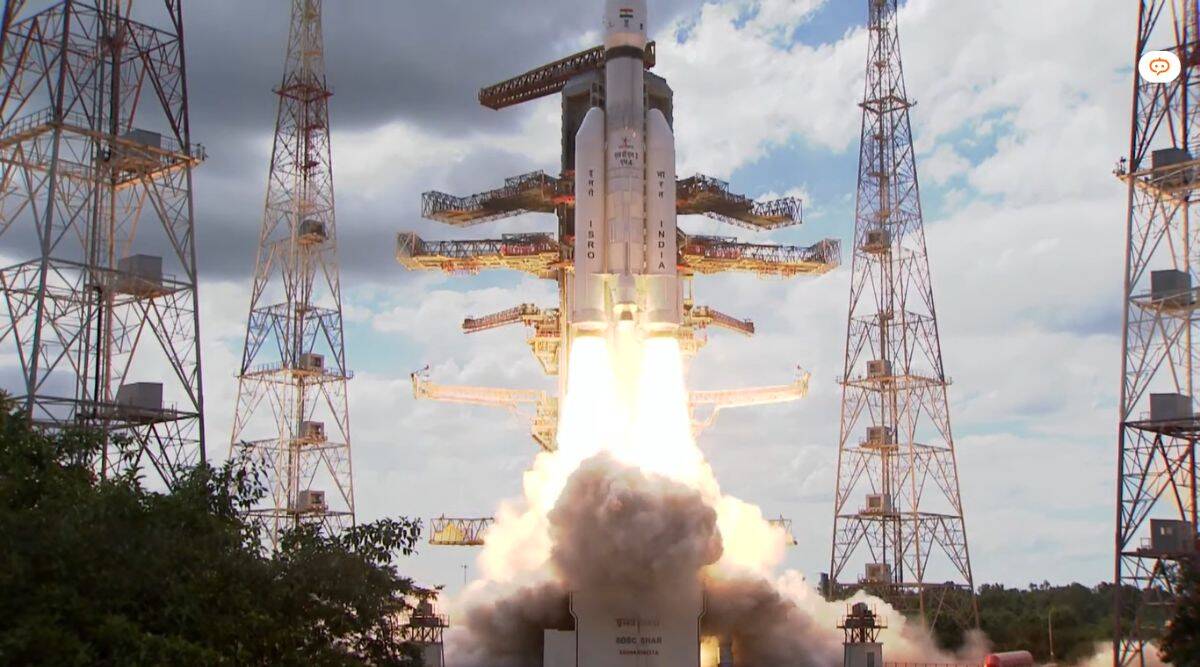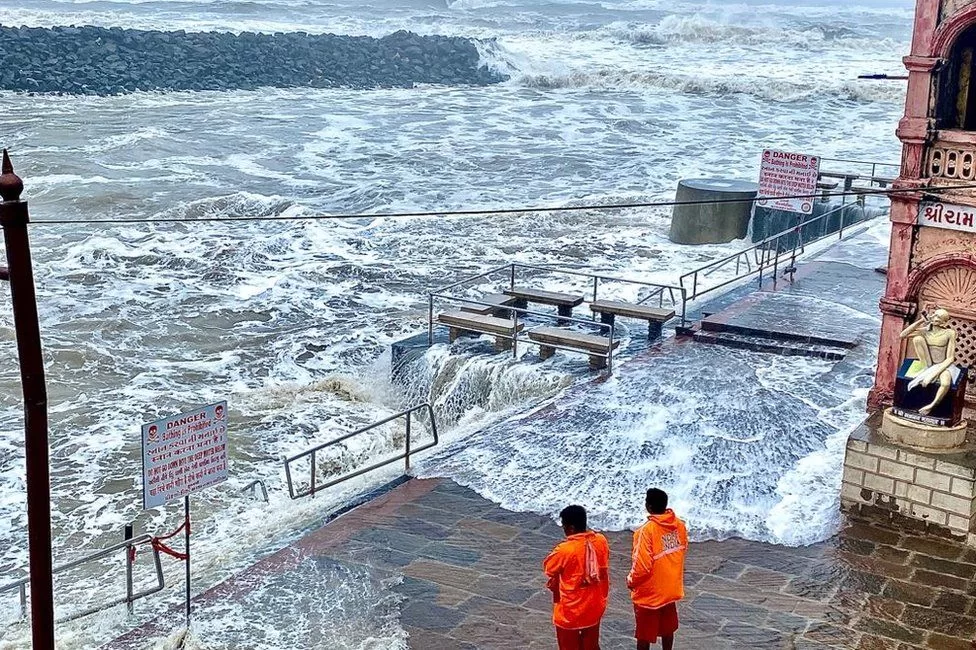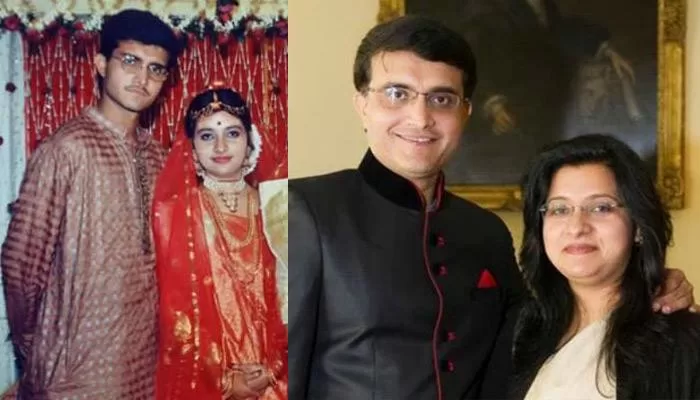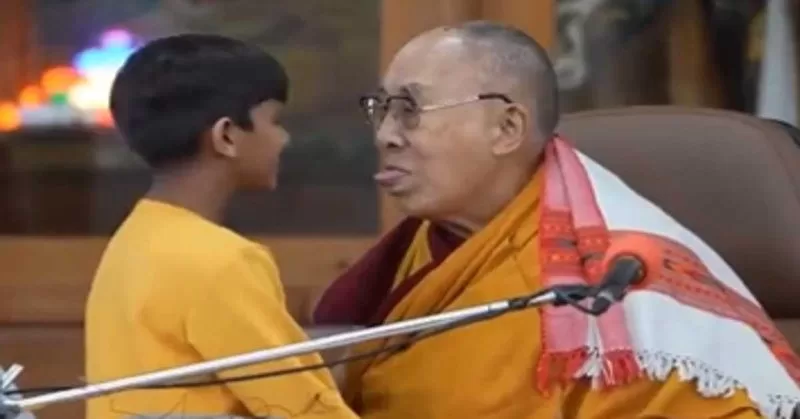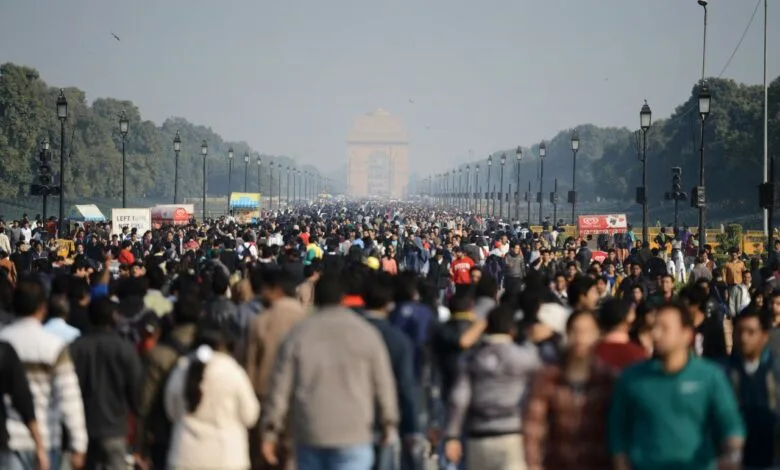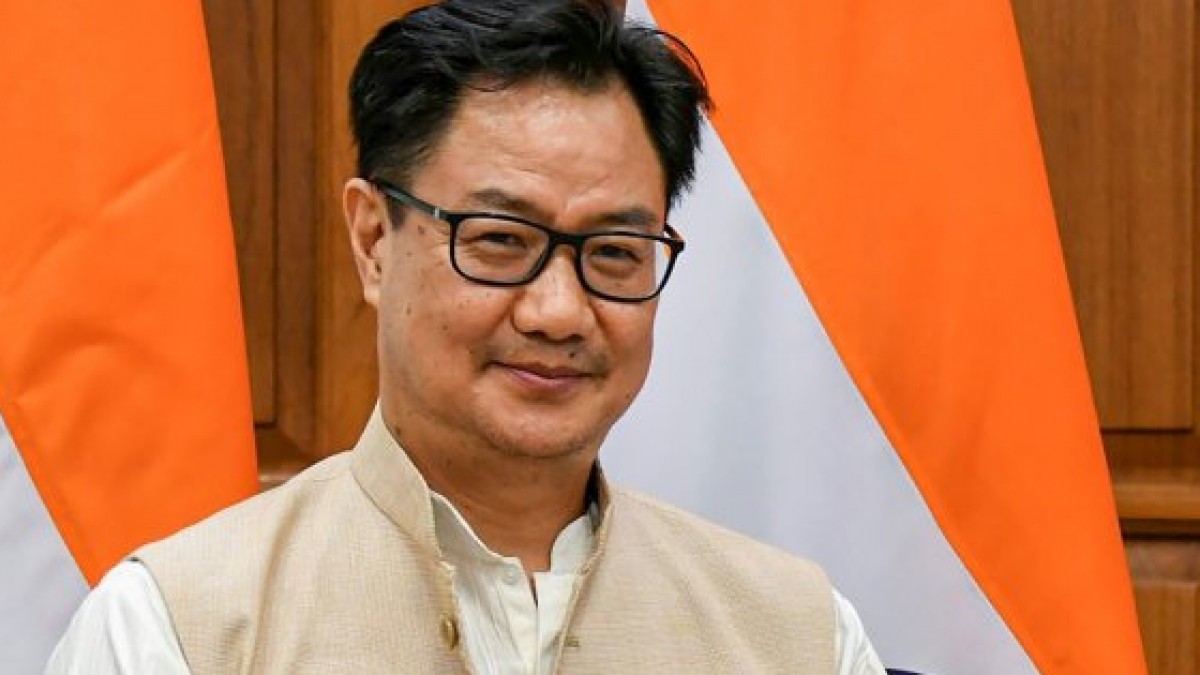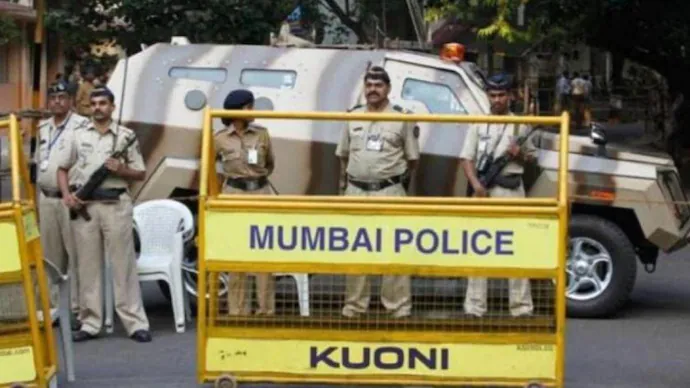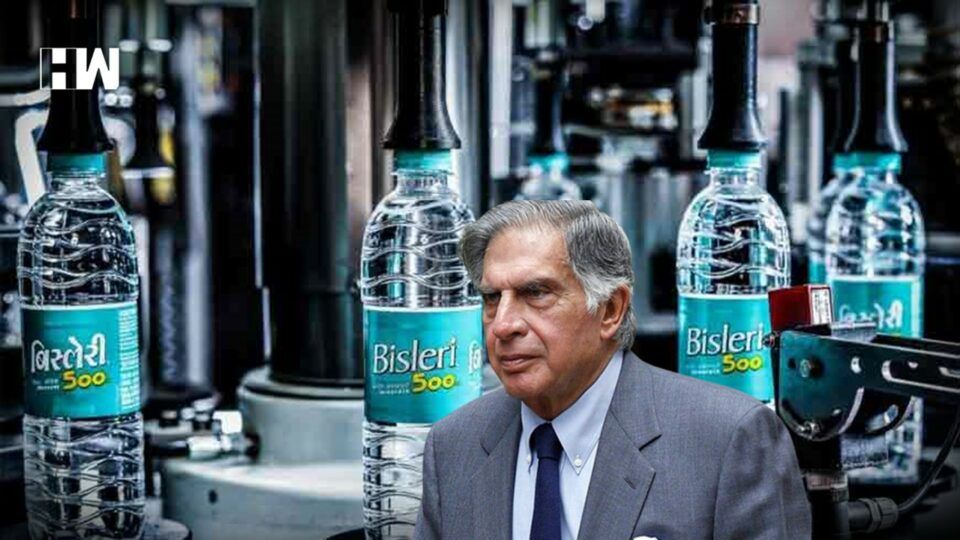
According to a recent Pew Research Center survey, a large 80% of Indians have a favorable impression of Prime Minister Narendra Modi, and a sizable majority of them believe that India’s foreign influence has increased recently.
More than 30,800 adults from India and 23 other countries participated in the study, which ran from February to May.
It included information on how people around the world view India’s geopolitical situation, how people feel about Prime Minister Modi, and how people feel about other nations.
While 79% of Indians overall had a favorable opinion of Prime Minister Modi, 55% of respondents said they had a “very favorable” opinion of the man who has been in office since 2014 and is running for re-election to a third term in the upcoming national elections next summer.
Contrastingly, only a fifth of those polled had a bad opinion of the leader. These results were made public soon before the upcoming summit of the Group of 20 leaders, which will be held in New Delhi the following month.
The study also revealed that while only 19% of Indian participants sensed a reduction in India’s global impact, 68% of them thought it had increased recently.
The majority of people in the G20 countries had favorable views of India, but the study found that during the previous 15 years, these opinions had waned in European nations.
According to the Pew survey, 34% of people have an unfavorable opinion of India, with a median of 46%. Participants from 12 of the surveyed nations were also questioned if they had faith in Prime Minister Modi to handle foreign issues. The findings showed that 40% had little faith in his judgment, while 37% had faith.
Survey Analysis
Also read: Indian real estate sector likely to expand by $5.8 trillion by 2047.
It is significant that the survey pool, which mostly focused on India, did not include G20 members Saudi Arabia, Turkey, China, or Russia.
Even though the poll noted that India’s reputation tended to be more positive than negative, the popularity seems to have declined across most European countries.
Notably, India’s favorable rating in France had fallen from 70% 15 years earlier to just 39% in 2023.
Israel stood up as a prominent outlier in terms of bilateral ties. The majority of respondents from Israel, 71%, had a favorable opinion of India, the highest percentage among all the countries polled.
Interestingly, despite this positive impression, there was a small variation in Israelis’ levels of confidence toward PM Modi, with 42% expressing lack of confidence compared to 41% expressing confidence.
The increasing strategic cooperation between India and the US as they work together to face the challenge posed by China’s ascent is likely what led to over half of Indian respondents believing that the US has increased its influence in recent years.
Similarly, 21% of Indian participants believed Russia’s influence had decreased while 41% saw it as increasing.
India, on the other hand, held the most negative views of all the countries surveyed, with 67% expressing an unfavorable impression. In light of the increasing border tensions between the two countries since 2020, this notion rings true.
Indians are the group of people surveyed who are most likely to think that Russian President Vladimir Putin will act morally when it comes to world affairs.
Similar to how India (65%) thinks highly of the US compared to many other countries assessed by the Pew Research Center.
Young Indians are typically more likely to voice their opinions regarding India. According to a Pew Research Center survey, at least 25% of Indians have no opinion of Mallikarjun Kharge and Adhir Ranjan Chowdhury, the two INC leaders.








